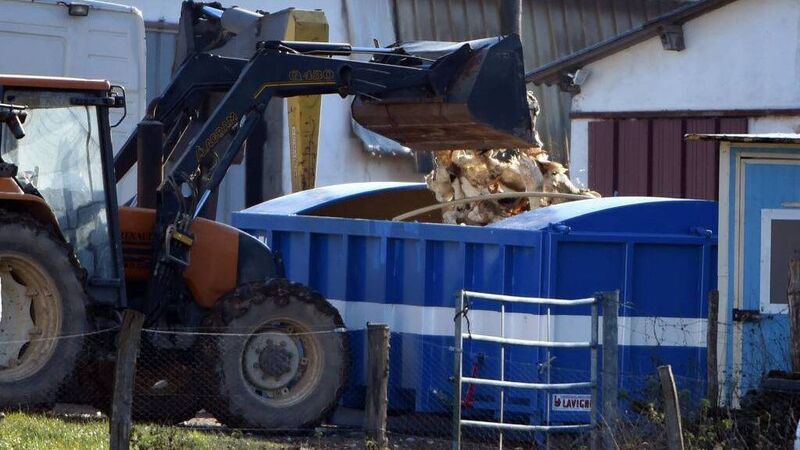French push for Avian Influenza vaccines

Ducks slaughtered due to the avian flu outbreak at a farm in Lohitzun-Oyhercq, southwestern France last month. Picture: Gaizka Iroz/AFP
The possibility of European farmers having to vaccinate their 400 million egg-laying hens and about 900 million broilers reared per year has emerged, as French agriculture minister Julien Denormandie pushes EU states to approve avian flu vaccination for poultry.
After the worst ever avian flu season in countries such as the UK, Germany, Belgium, the Netherlands and Italy, Denormandie wants vaccines approved for all 27 EU member states, as one of his objectives during France’s presidency of the EU, which runs until the end of June.










